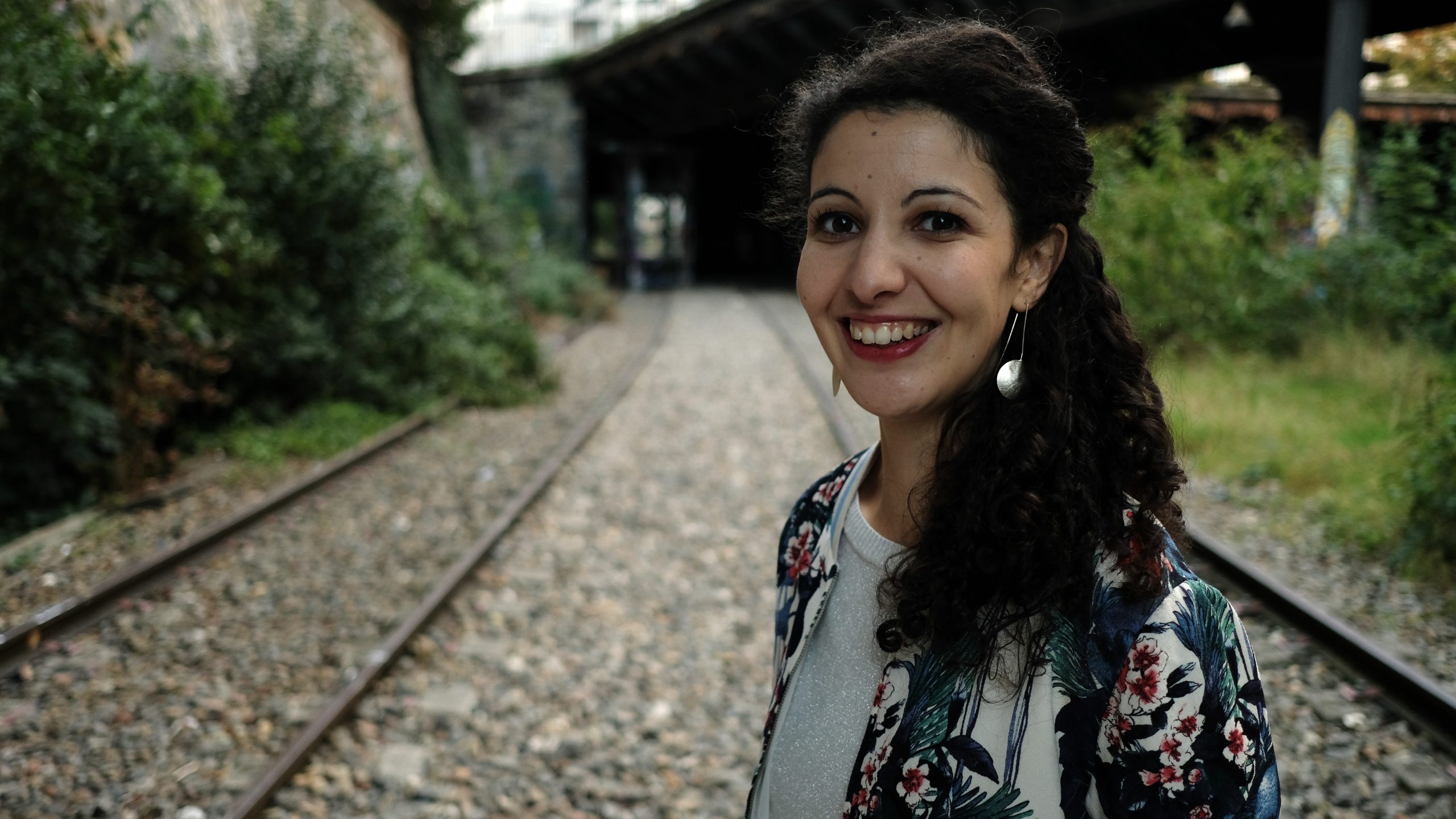Sabrina Bouarour
Filmmaker and Scholar
August-September 2026

- Cinema
- Washington, DC
“My project will gather materials on urban farming for and by the youth in Baltimore. At its core, it seeks to reveal the poetic resilience of nature flourishing within a food desert and the potential for climate change adaptation in a resilient inner city fighting for social and food justice.”
I am a filmmaker and scholar. For me, each film is an immersion into uncharted territory, an attempt to better understand the world by discovering it through the voices and perspectives of those who inhabit it. To tell the real, I conduct in-depth research and delve into visual archives in order to create a dialogue between past and present. I also draw inspiration from fiction, especially when it allows a more sensitive truth to emerge—for example, through music.
I lived in Baltimore for four years, where I made Lights of Baltimore, a feature-length film addressing issues of race and police violence in the aftermath of the 2015 uprisings following the death of Freddie Gray in police custody. In order to question the present, I revisited Baltimore’s past, examining in particular the systemic racism that has shaped the city.
Although ecology was not at the heart of that film, the urgency of the climate crisis made me realize that environmental issues are inextricably linked to questions of racism, poverty, and public health. I became interested in the green initiatives that emerged in Baltimore to combat inequalities in access to healthy food.
It is this intersection between social justice and ecological transition that I now wish to explore, through a poetic and political immersion in an urban farm in Baltimore where children and teenagers are preparing their future by reinventing their relationship with the living world.
Sabrina Bouarour is a filmmaker and scholar at the University of London Institute in Paris. After studying journalism at CFJ and film at the École Normale Supérieure (Ulm) and Sorbonne Nouvelle, she turned to documentary filmmaking and directed Lights of Baltimore. This feature-length documentary was screened at numerous international festivals and received the Best Feature Award at the Ocean City Film Festival.
She has been a Zaentz Fund fellow, and her work has been supported by the Île-de-France region, SCAM, SACEM, as well as the Economic Hardship Reporting Project and Maryland Humanities (National Endowment for the Arts). In parallel, she is also developing a fiction feature film project.
My project will gather materials on urban farming for and by the youth in Baltimore’s food desert for a new film at the intersection of food access, ecology, racial divisions, and health.
At the center of this new project is Great Kids Farm, a 33-acre site owned by Baltimore City Public Schools, where educators connect students to nature and the food system. The farm helps young people reconnect with their environment and learn to grow food.
I will volunteer there, observe daily life, and conduct interviews with students, educators, and farmers to explore community building, intergenerational knowledge, and the empowerment that comes through working the land.
By amplifying students’ voices, I aim to portray a generation facing climate change firsthand. Through immersion, I will explore how urban farming can reshape our perception of big cities, where plants and animals are overlooked. I will ultimately question the relationship between the marginalization of certain communities within Baltimore and the marginalization of nature in urban spaces. It will reveal the poetic wonders of nature in food deserts, and the potential for climate change adaptation in a resilient inner city fighting for social and food justice.
For now, I’m planning a short documentary on urban farming in Baltimore, potentially paired with an interactive multimedia installation to expand its impact and reach. I’m excited that the immersive research process may lead to unexpected insights and new creative possibilities that I can’t yet envision.
Baltimore’s socioeconomic, ecological and racial challenges stand as a microcosm for all of America. Yet their scale is unique to Baltimore, where concentrated poverty, high crime, limited food access and a stark racial divide led to unrest in 1968 and 2015. Nonetheless, dynamic and resilient communities have emerged to seek remedies to systemic issues. The rise of urban farming and community gardens is one such remedy.
I also focus on Baltimore because it is a city in which I have lived and worked for four years, and one that I love.
As a mother and educator, I’m drawn to an educational farm where I’ll spend most of my time, while also visiting other farms to better understand food systems.
I’ll visit Baltimore neighborhoods deeply impacted by inequality to visit farms that supply fresh produce and partner with grassroots organizations. These groups have transformed post-unrest attention into long-term food access efforts, including local grocery initiatives in partnership with national food justice foundations. I plan to meet food providers, document their work, and conduct interviews to better understand how these collaborations function.
I’ll use an immersive approach like I did in Lights of Baltimore by collecting sounds, images, and reflections. That film included a scene featuring arrabers, a tradition of horse-drawn fruit and vegetable vendors, a rare but vital practice that still helps alleviate food deserts. I’ll explore how such efforts operate without formal support and engage youth.
I’ll also visit gardens in neighborhoods with varying demographics to examine how green spaces foster connection and resilience, and how these spaces mirrors social tensions and search for justice.
In partnership with

The University of London Institute in Paris

Johns Hopkins University, Film and Media Studies Program

Great Kids Farm – Baltimore City Public Schools

